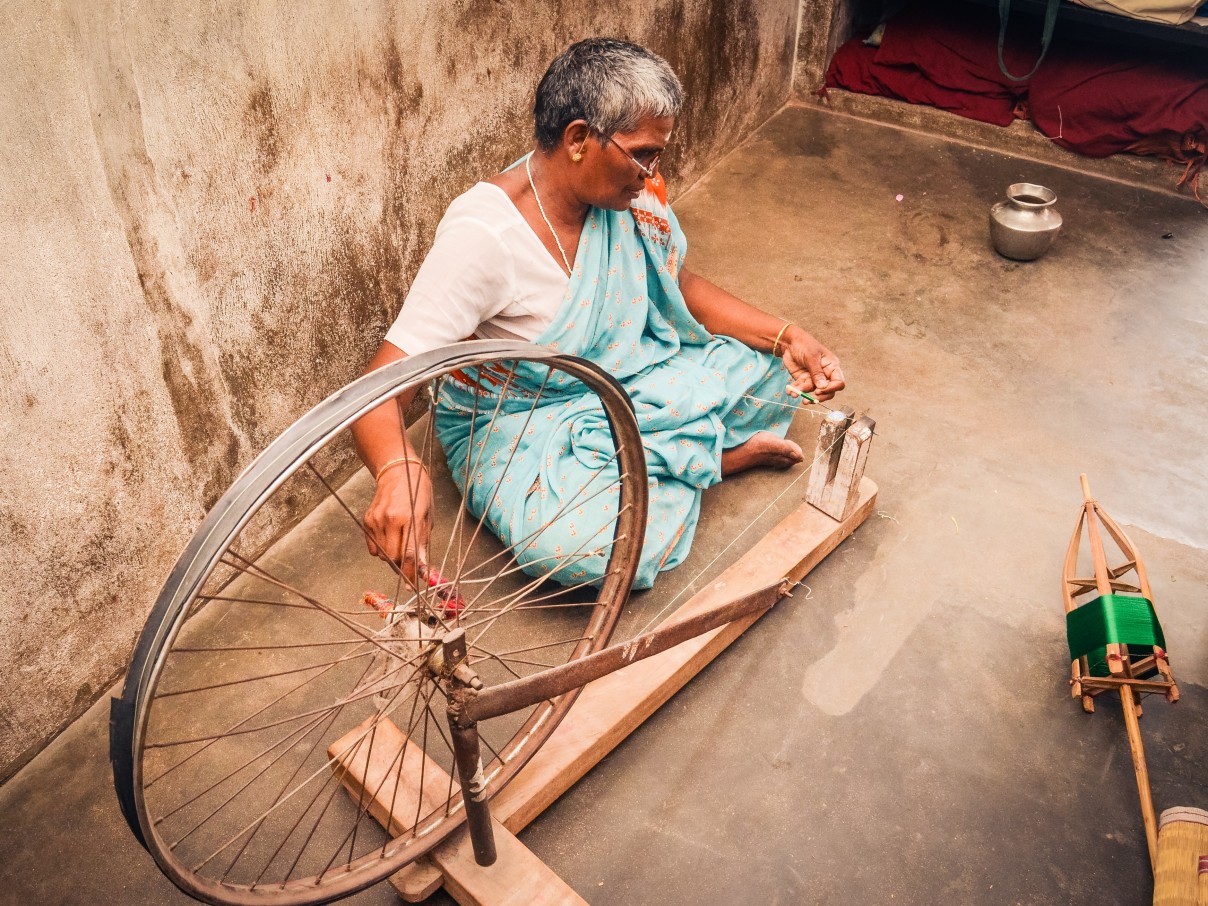Why jobs matter in the fight against poverty
15 Apr 2013

Hand in Hand’s Graham Stegmann: The case for supporting Barefoot Entrepreneurs
“Far and away the best prize that life has to offer is the chance to work hard at work worth doing,” said Theodore Roosevelt in 1903.

Graham Stegmann (CBE) | Senior Advisor to Hand In Hand
More than a century later and not before time, “work worth doing” looks like moving centre stage in development priorities. While the original Millennium Development Goals afforded only passing attention to jobs, Justine Greening – the UK Secretary of State for International Development – is setting her sights on “an end to aid dependency through jobs” as a priority. The World Bank’s heavyweight World Development Report for 2013 – focused solely on jobs – underlines: “development happens through jobs”.
Why jobs?
The poor are not poor because they are idle, lack initiative or ambition. They lack assets, skills and opportunities. What makes and keeps them poor is that they cannot earn enough to support their families. Having a job comes top of their list of priorities.
That jobs are good for growth and that growth will be private sector led is now unremarkable. But what is their likelihood of securing a job? Look at Africa today: less than 50 percent of women have jobs. In 2011, over 80 percent of African workers were defined as working poor, working but earning less than US $2 a day. Then consider the dynamics: by 2020, the African economy is projected by the International Labour Organization (ILO) to add 220 million people to the workforce. In other words, most African countries will double or triple their working age population.
What jobs?
Where will these millions of job seekers be employed? Most countries in Africa have made enormous economic strides in the last 10 years. External investment has doubled in that time but has produced relatively little employment. Even exceptionally high growth in manufacturing and services will not generate enough wage employment.
Less than 10 percent of Africans employed have jobs in private non-agricultural businesses. According to the African Development Bank, only 25 percent of young men and 10 percent of young women are able to secure jobs in the formal sector by the time they are 30. The immediate future for the majority of Africans will continue to be in the informal sector.
The informal sector is growing not because of regulation failures, but because it is the best option available to those who want to use their skills and energy to provide for themselves and their families. Household enterprises have generated most new jobs outside agriculture and this trend will continue.
Barefoot Entrepreneurs
More investment is therefore needed at the bottom to unlock the entrepreneurial potential of the poor. Increasing the number and productivity of micro-enterprises is critical. Generating more income from household enterprises through training and credit will have a substantial impact on GDP and on poverty.
A number of NGO’s are quietly working to unlock the entrepreneurial potential of the poor, with remarkable results – BRAC, Opportunity International and Hand in Hand, an organisation I advise. Over the last decade, largely funded by business donors, Hand in Hand has generated some 1.3 million jobs in India, three quarters of them for women, at a cost of less than US $50 a job. Hand in Hand’s approach blends training and credit: organising women into Self-Help Groups where they can gain confidence and pool savings, training them in basic financial and business skills and facilitating microloans if needed.
Training the most deprived members of society to make and sell bricks, run beehives or chicken farms sounds unspectacular but transforms their lives, enabling them to put enough food on the table, afford decent housing, water, medication when illness strikes and to send their children to school instead of work.
Hand in Hand is now successfully adapting the model originated in India to meet needs and circumstances in Kenya and Southern Africa, working in partnership with other organisations.
Good Business
So far, so good. Yet unlocking the potential of the poor should not be an aid or NGO agenda alone, or be relegated to corporate social responsibility. Creating jobs at scale needs the initiative of multinational businesses and home-grown entrepreneurs alike to foster innovation, forge links to national and global supply chains, and add value in country. Two examples:

Member of Hindustan Unilever’s rural salesforce team | Copyright: Unilever
In India, Unilever developed a sales-force serving more than 3 million households in remote villages by working with rural women micro-entrepreneurs. The 45,000 Indian women entrepreneurs in the programme have typically doubled their household income.
M-PESA, a Kenyan private mobile banking venture – with a contribution from UK aid – is now processing transactions worth up to one third of national GDP. It has transformed the lives and opened up new commercial opportunities for enterprising rural Kenyans.
We need more cross-sector partnerships now if we are to scale up job creation quickly. Otherwise a crisis of expectations could easily turn an Arab spring into a long hot African summer.
This article was originally published as an opinion piece on Business Fights Poverty
